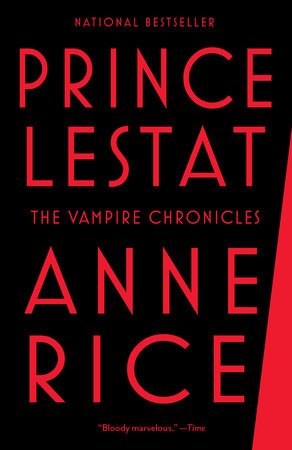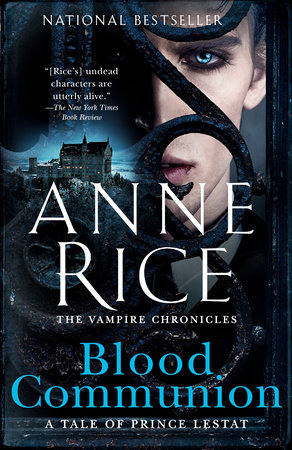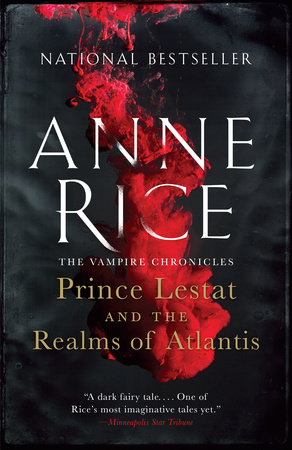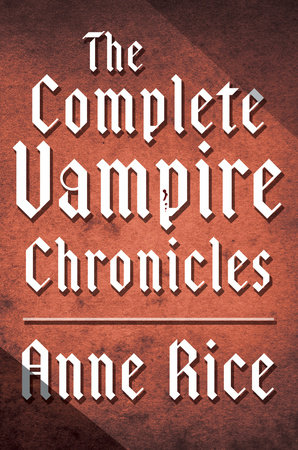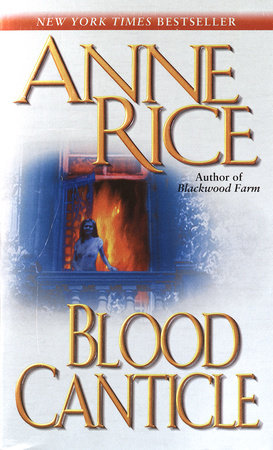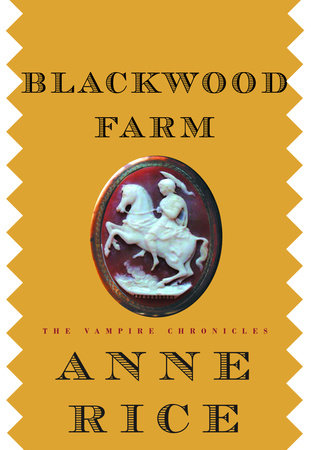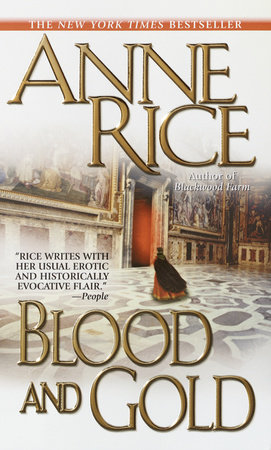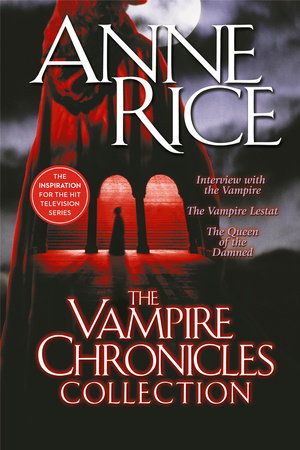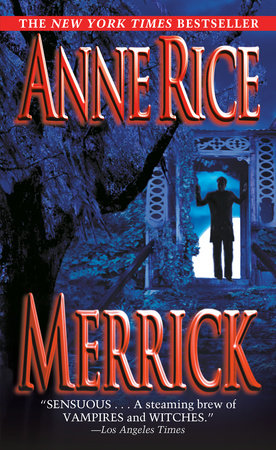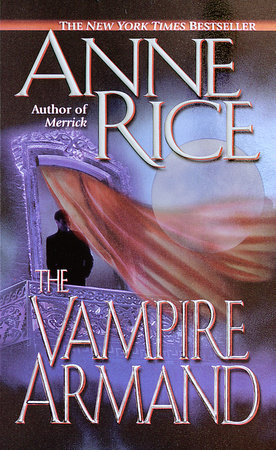Excerpt
Prince Lestat
The Voice
Years ago, I heard him. He’d been babbling.
It was after Queen Akasha had been destroyed and the mute red-haired twin, Mekare, had become “the Queen of the Damned.” I’d witnessed all that—the brutal death of Akasha in the moment when we all thought we would die, too, along with her.
It was after I’d switched bodies with a mortal man and come back into my own powerful vampiric body—having rejected the old dream of being human again.
It was after I’d been to Heaven and Hell with a spirit called Memnoch, and come back to Earth a wounded explorer with no appetite anymore for knowledge, truth, beauty.
Defeated, I’d lain for years on the floor of a chapel in New Orleans in an old convent building, oblivious to the ever-shifting crowd of immortals around me—hearing them, wanting to respond, yet somehow never managing to meet a glance, answer a question, acknowledge a kiss or a whisper of affection.
And that’s when I first heard the Voice. Masculine, insistent, inside my brain.....
“Hear me, come to me.” And he’d say that over and over again, night after night, until it was noise. . . .
The Voice rumbled and bellowed and whispered whenever I was there, rolling their names around in a stew of invective and rumination and demand. One evening, the Voice said, “Beauty is what drove it, don’t you see? It was the mystery of Beauty.”
A year later, I was walking along the sands of South Beach in Miami when he broke that one on me again. For the moment, the mavericks and rogues had been leaving me alone. They were afraid of me, afraid of all the old ones. But not enough.
“Drove what, dear Voice?” I asked. I felt it was only fair to give him a few minutes before shutting him down.
“You cannot conceive of the magnitude of this mystery.” He spoke in a confidential whisper. “You cannot conceive of this complexity.” He was saying these words as if he’d just discovered them. He wept. I swear it. He wept.
It was an awful sound. I don’t glory in any being’s pain, not even the pain of my most sadistic enemies, and here was the Voice weeping.
I was hunting, thirsting though I didn’t need to drink, at the mercy of the craving, the deep agonizing lust for heated, pumping human blood. I found a young victim, female, irresistible in her combination of filthy soul and gorgeous body, white throat so tender. I had her in the fragrant darkened bedroom of her own lodgings, lights of the city beyond the windows, having come over the roofs to find her, this pale woman with glorious brown eyes and walnut-shaded skin, black hair like the snakes of Medusa, naked between the white linen sheets, struggling against me as I sank my fangs right into the carotid artery. Too hungry for anything else. Give me the heartbeat. Give me the salt. Give me the Viaticum. Fill my mouth. . . .
On this dreary cold night, I’d been thirsty, more thirsty than I could bear. Oh, I don’t technically need the blood anymore. I have so much blood from Akasha in my veins—the primal blood from the old Mother— that I can exist forever without feeding. But I was thirsting, and I had to have it to stanch the misery, or so I told myself, on a little late night rampage in the city of Amsterdam, feeding off every reprobate and killer I could find. I’d hidden the bodies. I’d been careful. But it had been grim—that hot, delicious blood pumping into me and all those visions with it of filthy and degenerate minds, all that intimacy with the emotions I deplore. Oh, same old, same old. I was sick at heart. In moods like this, I’m a menace to the innocent and I know it only too well.
Around four in the morning, it had me so bad, I was in a little public park, sitting on an iron bench in the damp, doubled over, in a bad seedy part of the city, the late night lights looking garish and sooty through the mist. And I was cold all over and fearing now that I simply wasn’t going to endure. I wasn’t going to “make it” in the Blood. I wasn’t going to be a true immortal like the great Marius, or Mekare or Maharet or Khay- man, or even Armand. This wasn’t living, what I was doing. And at one point the pain was so acute, it was like a blade turning in my heart and in my brain. I doubled over on the bench. I had my hands clasped on the back of my neck, and I wanted nothing so much as to die, simply to close my eyes on all of life and die.
And the Voice came, and the Voice said:
“But I love you!”
I was startled. I hadn’t heard the Voice in such a longtime, and there it was, that intimate tone, so soft, so utterly tender, like fingers touching me, caressing my head.
“Why?” I asked.
“Of all of them, I love you the most,” said the Voice. “I am with you, loving you now.”
“What are you? Another make-believe angel?” I said. “Another spirit pretending to be a god, something like that?”
“No,” he said.
But the moment he’d started to speak, I had felt this warmth in me, this sudden warmth such as addicts de- scribe when they are infused with the substance they crave, this lovely reassuring warmth that I’d found so fleetingly in the blood, and I’d begun to hear the rain around me, hear it not as this dismal drizzle but as a lovely soft symphony of sounds on the surfaces around me.
“I love you,” said the Voice. “Now, get up. Leave this place. You must. Get up. Start walking. This rain is not too cold for you. You are too strong for this rain and too strong for this sorrow. Come on, do as I tell you. . . .”
And I had.
I had gotten up and started walking and made my way back to the elegant old Hotel De L’Europe where I was lodged, and I’d gone into the large, exquisitely wall- papered bedroom and closed the long velvet draperies properly over the coming sun. Glare of white sky over the Amstel River. Morning sounds.
Then, I’d stopped. I’d pressed my fingers to my eyelids and buckled, buckled under the weight of a loneliness so terrible I would have chosen death then if only I’d had such a choice.
“Come now, I love you,” said the Voice. “You’re not alone in this! You never were.” I could feel the Voice inside me, around me, embracing me.
Finally, I lay down to sleep. He was singing to me now, singing in French, singing some lyrics put to the beautiful Chopin etude, Tristesse. . . .
“Lestat, go home to France, to the Auvergne where you were born,” he whispered, just as if he were beside me. “Your father’s old chateau there. You need to go there. All of you human beings need a home.”
So tender it sounded, so sincere.
So strange that he would say this. I did own the old ruined chateau. Years ago, I had set architects and stonemasons to rebuild it, though why I did not know. I saw an image of it now, those ancient round towers rising from that cliff above fields and valleys where in the old days so many had starved, where life had been so bitter, where I had been bitter, a boy bound and deter- mined to run away to Paris, to see the world.
“Go home,” he whispered.
“Why are you not winking out the way I am, Voice?” I asked. “The sun’s rising.”
“Because it is not morning where I am, beloved Les- tat.”
“Ah, then you are a blood drinker, aren’t you?” I asked. I felt I’d caught him. I began to laugh, to cackle. “Of course you are.”
He was furious. “You miserable, ungrateful, degenerate Brat Prince,” he was muttering . . . and then he’d left me again. Ah, well. Why not? But I hadn’t really solved the mystery of The Voice, not by a long shot. . . .
When I woke, it was of course early evening, and Amsterdam was filled with roaring traffic, whizzing bicycles, myriad voices. Scent of blood pumped through beating hearts.
“Still with me, Voice?” I asked.
Silence. Yet I had the distinct feeling, yes, the feeling that he was here. I’d felt wretched, afraid for myself, wondering at my own weakness, inability to love.
And then this happened.
I went to the full-length mirror on the bathroom door to adjust my tie. You know what a dandy I am. Well, even down and out, I was in a finely cut Armani jacket and dress shirt, and, well, I wanted to adjust this bright, flashing, beautifully hand-painted silk tie and—my reflection wasn’t there!
I was there, but not my reflection. It was another me, smiling at me with triumphant glittering eyes, both hands up against the glass as if he were in a prison cell behind it. Same clothes, yes, and me down to the last detail of long blond curling hair and glittering blue- gray eyes. But not a reflection at all.
I was petrified. The dim echo of doppelgänger rose in my ears, and all the horror such a concept connotes. I don’t know if I can describe how chilling this was—this figure of myself inhabited by another, leering at me, deliberately menacing me.
I remained sober-faced, and I continued to adjust my tie, though I could see no reflection of what I was doing. And he continued to smile in that icy mocking way, as the laughter of the Voice rose in my brain. . . .
I went to Anatolia to escape it all. I wanted to see Hagia Sophia again, to walk under those arches. I wanted to wander the ruins of Göbekli Tepe, the oldest Neolithic settlement ever discovered. To hell with the problems of the tribe . . .


